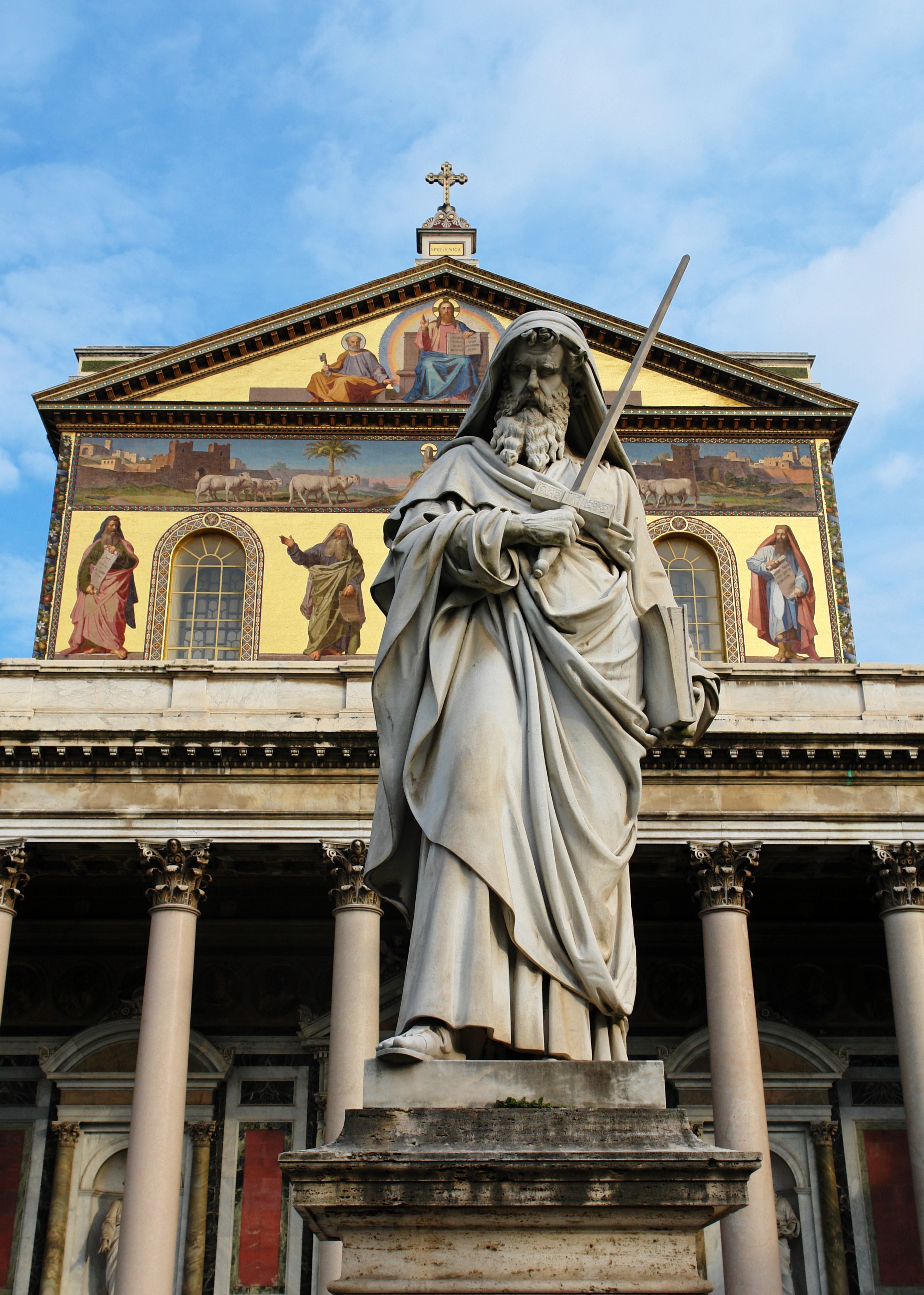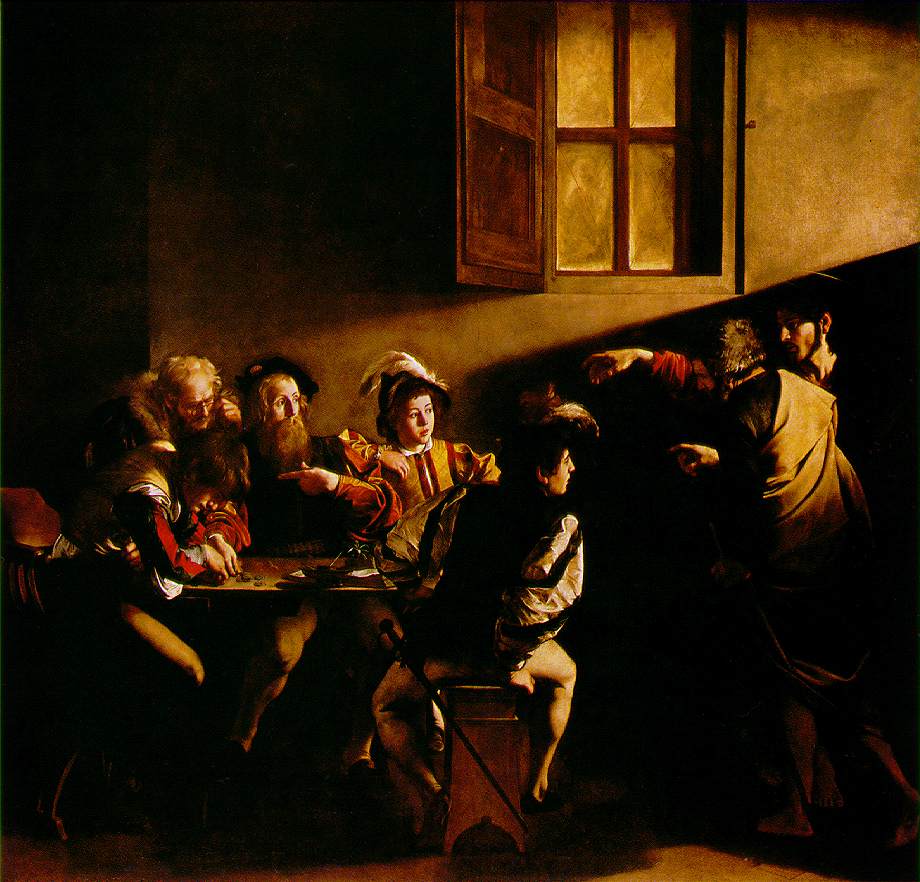12th Sunday of the Year A (22Jun2008)
Jer 20. 10-13; Ps 69; Rm 5. 12-15; Mt 10. 26-33Homily of Fr. Paul Panaretos, S.J.Flip SideProbably everyone here has heard or red the poet’s line, “No man is an island.” John Donne, who spanned the 16th & 17th Centuries, was convinced that all humanity, in his words,
"is of one author, and is one volume; when [anyone] dies, one chapter is not torn out of the book, but translated into a better language; and every chapter must be so translated."
/1/His conviction, common to many, is that people don’t thrive in isolation. This conviction can be expressed positively, as by a woman writing more recently: “a thousand fibers connect us to those who are present and those present throughout the generations.”
/2/ Connection is the flip side of isolation.

Today’s reading from St. Paul also positively expresses a flip side, the concise scriptural expression of our doctrine of original sin. Because this 3-verse selection is proclaimed only every third year, and because our focus favors only one side of the doctrine of original sin--
the transgression instead of
the gift, to use St. Paul’s words, to hat is reason enough to consider it. Even more important is the fact that all of us are baptizing Christopher and Caroline at this mass, so I am moved to briefly reflect on St. Paul's words during our worship together.
Original Sin is the name the church gives to the consequence of the first humans’ choice to disrupt the harmony of God’s creation. The power of art may even train our eyes on the result for Adam and Eve, their banishment from Paradise. That image evokes for us that Adam and Eve were aware of their no-longer graced condition and that, instead of living in the garden of God, they would have to eke out their living by toil and pains. In a word, everything about human existence is distorted.
We inherit this distortion because “a thousand fibers connect us to those who are present and those present throughout the generations.” Original Sin is unlike any other sin because we inherit it, we do not commit it. Original Sin describes our human condition: we are in desperate need of being returned to right relation with God, with others, with ourselves. Not only fractured relationships, we inherit
death, the final wrenching apart of our bodies and spirits.
/3/The name of the doctrine contains only half of the doctrine, original sin, which focuses us on
the transgression. The rest, the flip side of the doctrine, is
the gift.
/4/ The gift is a person, Jesus, who restores us to right relationship with God, with others and with ourselves. We are spirits clothed in flesh, we were created as bodily images of God. God’s intention was that our bodies reveal our selves.
Jesus’ body revealed his true self. We know that we do not always reveal our true selves. That is our inheritance of original sin. That is why Jesus is both
the gift and the one who restores us to our original holiness, to our true selves as images of God.

Our openness to God restoring us in Jesus by their Spirit is precisely that. It isn’t our effort, our alignment of certain qualities or even virtuous will-power: it is being open. Our restoration, our redemption, our salvation, our confident trust in our Creator and Redeemer: indeed every name and aspect of
the gift we inherit no less than we inherit original sin. This is the positive side of the doctrine.
Jesus translates our lives into his "better language," the powerful effects of his
grace.
Grace is real;
grace is God’s life.
Grace is more real than the distorting effects of original sin. The
grace, the life of Jesus, has already begun to translate us from distortion, disharmony and isolation into clarity, concord and connection.
In your 15 minutes with Jesus this week cast whatever burdens you onto the Trinity. Ask St. Paul to present you to Jesus. Praise Jesus for
the gift of life Jesus is to you. Thank Jesus for the life Jesus offers you and creates within you. Ask Jesus to allow you to continue to grow more connected to him; to become a more thriving disciple of his gospel; and to proclaim it more clearly with every fiber of yourself. Close by saying slowly the
Lord’s Prayer, which restores our relationships with Jesus, with others and with ourselves the more we pray it.
___________
/1/ Meditation XVII from Devotions Upon Emergent Occasions.
/2/ Violet George, cited in “Quite Moments,” Catholic Digest, June 2008, p. 126. It provided no bibliographical information about Violet George, and an internet search was not fruitful.
/3/ “We are at once body and spirit,” proclaims The Catechism of the Catholic Church [CCC] #1146
/4/ CCC expressed it this way: “The doctrine of original sin is, so to speak, the reverse side’ of the Good News that Jesus is the Savior of all...that all need salvation, and that salvation is offered to all through Jesus Christ.” #389. St. Paul emphasized the graciousness of salvation by calling it charis, a Greek word translated by the Latin, gratis, grace. The meaning is free and unearned.
______________________________________________
Wiki-image of the Expulsion of Adam and Eve and Christ's descent among the dead in the public domain.
 of resources for the Year of St. Paul, which began after Evening Prayer on 28 June 2008, the Vigil of the Solemnity of Ss. Peter and St. Paul.
of resources for the Year of St. Paul, which began after Evening Prayer on 28 June 2008, the Vigil of the Solemnity of Ss. Peter and St. Paul.













